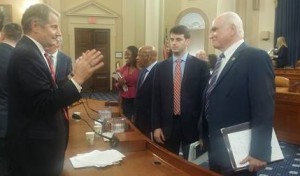Fixed-Dollar Tax Credits Would Reduce Individual Health Insurance Premiums
 Sonia Jaffe and Mark Shepard of the National Bureau of Economic Research (NBER) have written a new paper, which compares the effects of fixed-dollar subsidies for health insurance to subsidies that are linked to premiums. They conclude fixed-dollar subsidies reduce taxpayers’ costs and improve access. Unfortunately, the structure of subsidies in U.S. health insurance has moved in the other direction.
Sonia Jaffe and Mark Shepard of the National Bureau of Economic Research (NBER) have written a new paper, which compares the effects of fixed-dollar subsidies for health insurance to subsidies that are linked to premiums. They conclude fixed-dollar subsidies reduce taxpayers’ costs and improve access. Unfortunately, the structure of subsidies in U.S. health insurance has moved in the other direction.
Tax credits that subsidize health insurance offered in Obamacare’s exchanges are based on the second-lower cost Silver-level plan in a region. Intuitively, this implies insurers will not compete too much because that would drive down subsidies. As long as subsidies chase insurance premiums, premiums will be higher than otherwise.
Jaffe and Shepard examine evidence from Massachusetts’ health reform (“Romneycare”), which dates to 2006. Its costs are still spiraling, and Jaffe estimates one factor is its design of subsidies, which is similar to Obamacare’s:





